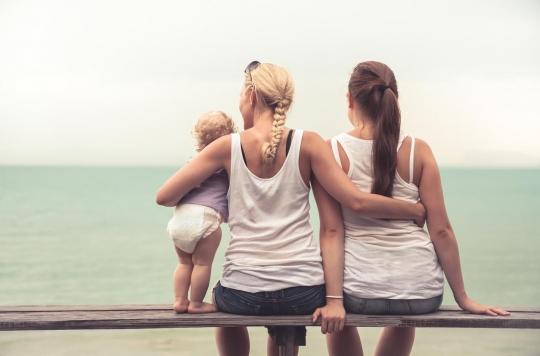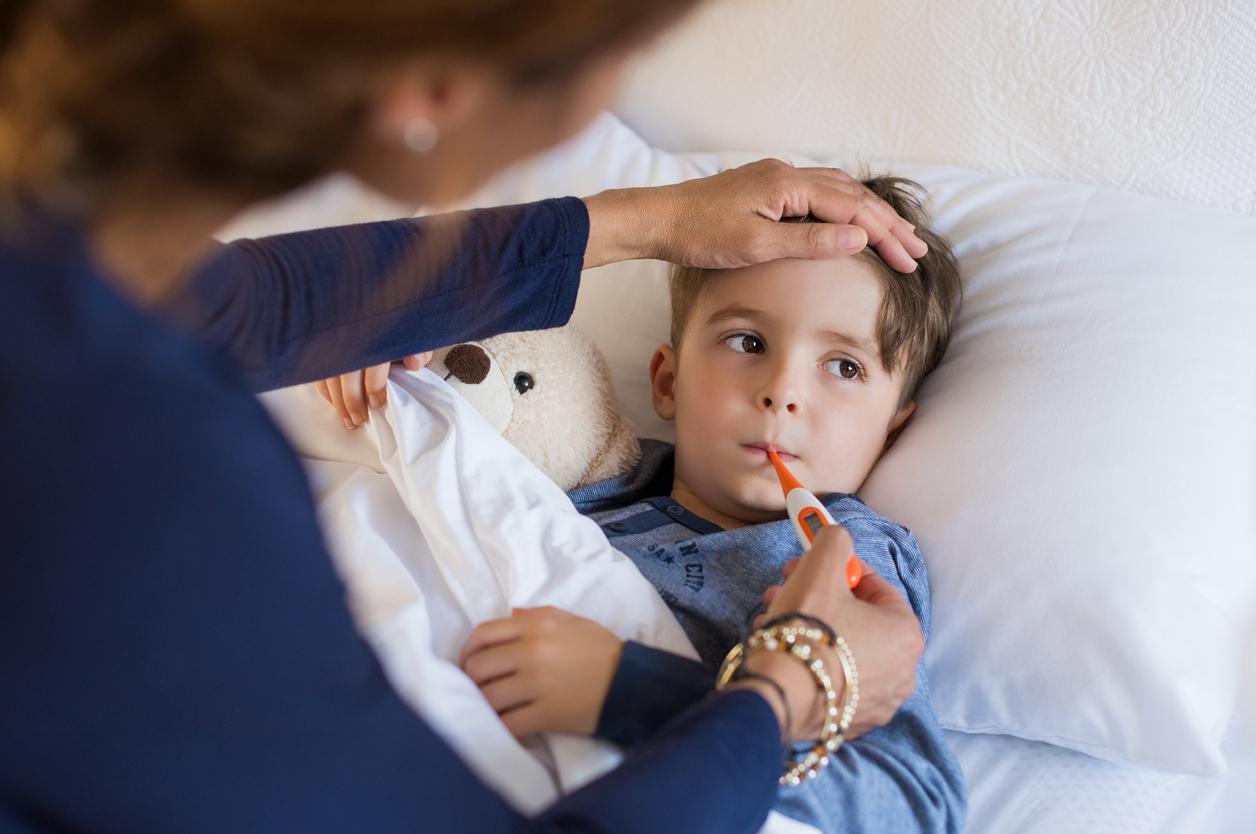According to an American study conducted over several decades, the children of lesbian couples are in perfect psychological health. They would even have a higher level of academic success than the children of observed heterosexual parents.

While the opening of medically assisted procreation (PMA) to lesbian couples has provoked many controversies during presentation of the bioethics bill to the Council of Ministers last week, a new study is likely to cause a stir. According to work published in the very serious review New England Journal of Medicine, children raised by female couples are just as healthy mentally as those raised in heterosexual families.
For decades, the National Longitudinal Study of Lesbian Families (NLLFS) in the United States has observed the evolution of the children of these families. “When I started this study in 1986, there was much speculation about the future mental health of children conceived through donor insemination and raised by sexual minority parents,” researcher Nanette Gartrell says in a published press release. by the Williams Institute.
Gartrell and her colleagues met with 154 lesbian mothers and their children. When interviewed at age 17, none of them reported having been physically or sexually abused by a parent, the researchers note. The latter were also able to observe that in addition to being in perfect psychological health, these young people had a higher level of academic success than that of the children of heterosexual parents observed in parallel. “We’ve been following these families since the mothers had artificial insemination, and now we see that their 25-year-old daughters and sons are showing as good mental health outcomes as other adults the same age,” he said. enthuses Nanette Gartrell.
“Nothing justifies the custody or placement of children”
“These results demonstrate that claims that it would be harmful for children to be raised by same-sex couples are completely unfounded,” explains Henny Bos, co-author of the study. “There is no justification for limiting the custody or placement of children, or access to reproductive technologies, based on the sexual orientation of the parents,” he continues.
Note, however, that this study has some shortcomings. Indeed, the lesbian mothers who took part are mostly white, middle class and live in big cities known to be more open. Either way, their children were “compared to others of the same age, gender, race and economic class,” the site comments. Them, dedicated to LGBTQ news.
This study is not the first to question the well-being of children raised by homosexual couples. In September 2018, Italian researchers published thethe results of their investigation out of 70 gay men whose children were born through surrogate mothers, 125 lesbian mothers who had children through sperm donations and 195 heterosexual couples who fathered by spontaneous conception. According to questionnaires answered by the parents themselves, gay fathers were more competent and satisfied with their relationship than heterosexuals. They also reported better levels of family cohesion and flexibility than lesbian mothers and heterosexual parents.
In France, the debate on the opening of PMA to all women is still lively
The results of this new study appear while the ministers Agnès Buzyn (Health), Nicole Belloubet (Justice) and Frédérique Vidal (Higher education and research) have just presented their bioethics bill to the Council of Ministers. The latter notably providing for the opening of the PMA, hitherto reserved for heterosexual couples who could not have children, for female couples and for single people, several associations expressed their dissatisfaction on Wednesday July 24.
Lambasting a text which, according to them, leads to the “development of the commodification of the human”, to the “liberalization of surrogacy (surrogacy)” and to the “risk of misappropriation of medicine”, La Manif pour tous, Alliance Vita or the Association of Catholic Families of France have announced that they will demonstrate on October 6. The goal is to recall their opposition to this bill a few days after the start of its parliamentary examination in the National Assembly.
.
















